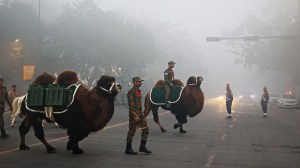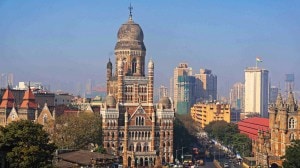Electionless managers
Strictly speaking, it is nobody8217;s business as to whom the BJP8217;s Central Election Committee should choose to field as the party14...

Strictly speaking, it is nobody8217;s business as to whom the BJP8217;s Central Election Committee should choose to field as the party8217;s candidates for the coming Lok Sabha elections. Nevertheless, its decision to keep its high profile spokespersons 8212; Arun Jaitley, Pramod Mahajan, Sushma Swaraj and Mukhtar Abbas Naqvi 8212; from contesting this time sends out signals that run contrary to the image of a modern and modernising party that it so assiduously wishes to promote for itself. The argument put forward by the party president, Venkaiah Naidu, is that these four individuals are required to manage the party8217;s affairs in the various states so that it can emerge as a convincing winner this time.
The presumption made here is that unless there are full-time poll managers monitoring the situation on the ground, the BJP cannot register a convincing win. There can be no doubt, of course, that Messrs Jaitley and Mahajan did play an important role in bringing their party to power in the recent polls to the Madhya Pradesh and Rajasthan assemblies. But why a party that is as well-established and confident as the BJP, with numerous supporters both within its ranks and within the sangh parivar at large, needs to lean so heavily on four individuals is a mystery. In any case, our political history is rife with instances of politicians being able to manage the affairs of their party and still go on to win elections, so where8217;s the problem?
Venkaiah8217;s argument therefore does not seem to stand the test of either logic or politics. In the process, the party is depriving itself of the services of four articulate politicians who stand a good chance of winning in the elections and who would, if they had won, added to the quality of the party8217;s presence in the 14th Lok Sabha. There is another aspect that needs to be emphasised here. These leaders have, over a period of time, emerged as the second line of leadership, introducing a touch of youthful energy into a party that has thus far been dominated by much older individuals. But the legitimacy of the four as BJP8217;s future leaders would depend crucially on their ability to win elections to the Lok Sabha 8212; an opportunity that is now being denied to them. A Rajya Sabha seat, as any student of Indian politics knows, can never quite be equated with that of the Lok Sabha, for the very fact that the second bears the imprimatur of representing the people directly.
- 01
- 02
- 03
- 04
- 05































